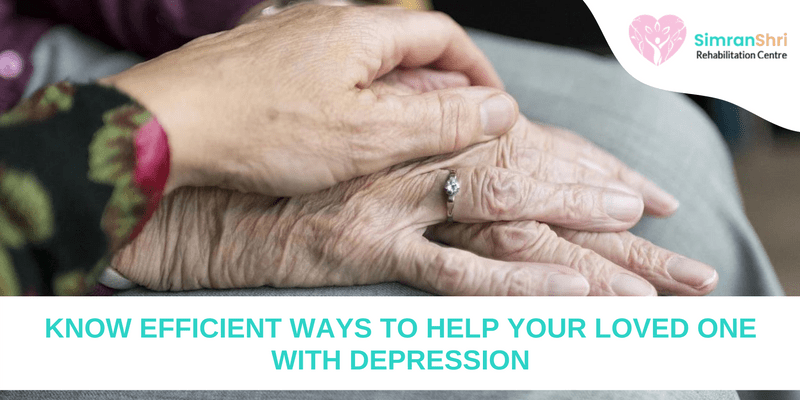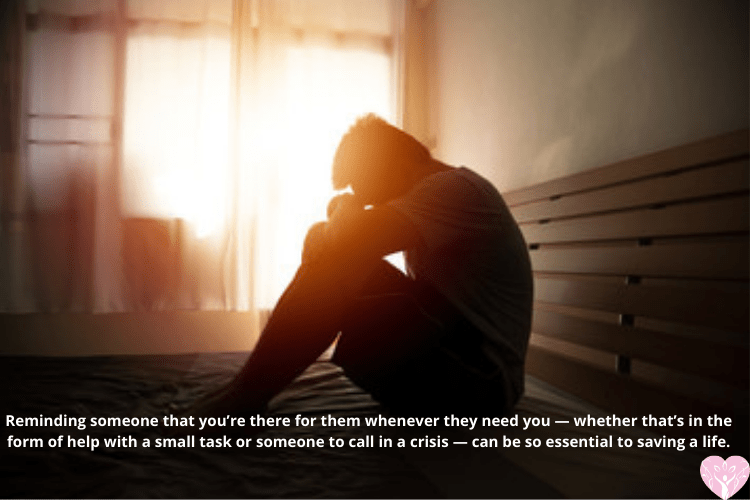

Experiencing sadness is common. We all experience this emotion at some point in our lives. But not everyone suffers from depression. If you have never faced it yourself, chances are you will never be able to grasp how difficult living with depression is. Struggling with depression is difficult, not only for the individual but also for their family and close friends.
Depression affects mood, the ability to think and function. It interferes with the day to day activities and causes deep emotional pain. This disorder can shut off all hope, numb the sensations, and affect creativity. It pushes away the people close to the individual and decreases the ability to feel.
People think a person with depression is lazy and lacks the will to change. As if a sudden wave of a hand will magically change that. They do not understand that a person with depression genuinely feels that change is impossible for them and that they are stuck on an endless loop of suffering that seems to have no end. People also confuse grief and depression. There are stark differences between the two. While grief is a natural response to specific experiences, it does not have the overwhelming self of worthlessness that comes with depression. In grief, the painful feelings come in waves and carry positive memories. At the same time, depression feels like an endless loop of sorrow. Your loved ones need your support; learn ways to help someone with depression and stop them from sinking deep into the quagmire of depression.

Feeling sad isn't the only gauge of depression. There are different signs of depression, and experiencing at least five of those symptoms most of the day, nearly every day, and for more than two weeks may mean that your loved ones have clinical depression. Although women, teenagers, and men can experience depression symptoms, it affects them differently. Like grief, depression is also very personal – that is, two people can manifest the same type of depression very differently. If you want to help your loved one, recognize these signs in them.
Clinical depression is also known as Major Depression. It is associated with persistent low mood, loss of interest, and pleasure. The following are the symptoms of major depression –
● Constant feeling of emptiness and worthlessness
● Disinterest in work, hobbies, friends, family, and other activities that were once interesting
● Feeling fatigued for no reason.
● Having trouble with concentrating and making decisions
● Problem sleeping at night or sleeping too much
● Loss of libido, lesser interest in sexual activity, lowered sex drive
● Feeling restless and anxious or the exact opposite moving and speaking slowly
● Recurrent thoughts about suicide and death
There are several types of depression. While some of them are caused by specific events and happenings in your life, others are caused by the chemical changes in the brain. The difference lies in the persistent symptoms and the behaviour it affects. Struggling With depression of different types is challenging, making the individual’s functioning in daily life difficult. Some of the common types of depression are –
● Persistent Depressive Disorder (PDD)
● Major Depressive Disorder
● Bipolar Disorder (Maniac Depression)
● Seasonal Affective Disorder (SAD)
● Psychotic Depression
● Premenstrual Dysphoric Disorder (PMDD)
● Situational Depression
● Antepartum Depression
● Postpartum Depression (PDD)
● Atypical Depression
● Treatment-Resistant Depression
Each of these types has different symptoms and affects the individual in multiple ways. A person might have one or various types of depression, depending on the situations or events.
The stage of severe depression can only be managed with the help of a mental health professional seeking the best counselling for depression. If you recognize the symptoms mentioned above in your loved ones, get them to a psychologist.
Treatments for depression include different forms of psychotherapy, medications, and counselling. Often, a blend of therapies is used to ease the individual and get a better result. Psychotherapy includes talking to a trained professional who will focus on making positive changes in the thoughts and behaviour of that person to help them ease the symptoms. However, with therapies, not one size fits all. Specific therapies work better than the other and are more effective in treating depression. Major depressive disorder treatments include –
● Cognitive Behavioural Therapy (CBT)
● Dialectical Behavioural Therapy (DBT)
● Interpersonal Therapy (IPT)
● Pharmacotherapy
● Psychodynamic Therapy
● Accelerated Experimental Dynamic Psychotherapy (AEDP)
Apart from this, there are alternative depression treatment options that have been found effective in treating depression –
● Medically Induced Ketamine
● Hallucinogenic mushrooms
● Miniscule doses of LSD
Tackling depression can be challenging if the person does not have a sound support system. Tackling depression is not as simple as taking a pill for a headache. The problem arises when the person has to continue treatment for long periods. People are quick to dismiss therapy if they do not see a change right away. Treatments for chronic depression symptoms may differ from manic depression symptoms. That does not mean the treatments are not effective. It just means that those methods are less effective for a particular individual. Sometimes, antidepressants can have side effects like drowsiness, weight gain, nausea, and lowered sex drive.
Apart from motivating your loved one to continue their treatment, Here is how you can help someone deal with depression -
● Make them feel heard- start a conversation with your loved one, ask open-ended questions. Remember to be a listener more than a speaker during the conversation. Show them care, validate their feelings and refrain from offering advice. Simply empathize with them.
● Help them get the right treatment - Your loved one might not gather the strength to seek help for themselves. If you see signs of depression in them, take them to a psychologist. Your loved one might also be hiding addictions; individuals suffering from depression often resort to drugs/alcohol for temporary relief. Keep them close and, if required, take assistance from the best counselling for addiction in India.
● Motivate them through the treatment - Lack of interest and feeling hopeless is part of depression. Your loved one might want to give up treatment; you need to constantly encourage them and ensure they don't stop the treatment.
● Learn about depression - Get in touch with mental health professionals and read more about depression; the more you know, the better you'll be able to guide your loved ones. You may also recognize the occurrence of other conditions such as anxiety; in such cases, you can inform their mental health professional and seek the best anxiety disorder treatment timely.
● Extend invitations - individuals with depression face a hard time reaching out to people or socializing. You should continue inviting them besides them not showing up. Being uninvited may result in isolation; tell them you understand that they couldn't follow the plan and can join whenever they are comfortable.
● Be patient - Depression requires treatment; it can not be dealt with overnight. A string of bad days does not mean the treatment is ineffective, and a single happy day does not mean the individual has overcome depression. Struggling with depression requires ongoing treatment and management.
● Avoid trying to “fix them” - refrain from conversations about reminding them how people have dealt with situations worse than them or how they are being "ungrateful" about what life has bestowed them with. These conversations DO NOT help cure depression. You can remind them how fond you are of them and why you admire them- these conversations are more likely to help, even if your loved one does not respond immediately to it.
These ways can help cope with the negativity and bring a nit of semblance in times of need. It is only imperative that we remain hopeful and together in these challenging times and spread positivity around and remember – your loved one shall emerge strong.